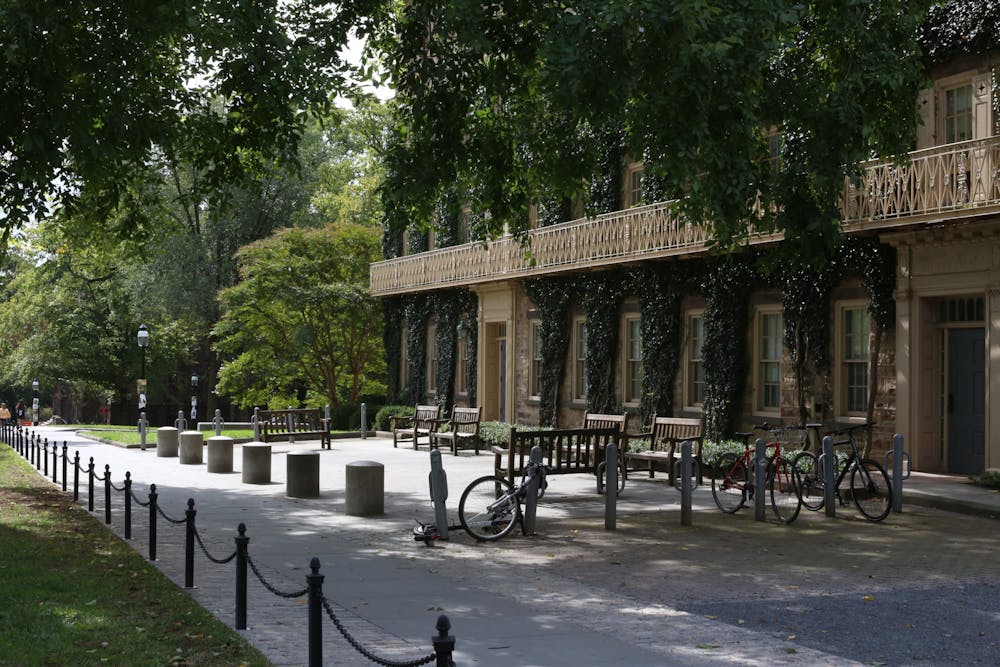Last month, University President Christopher Eisgruber took to The Atlantic to defend the coexistence of diversity and excellence at elite universities. Eisgruber argued that, contrary to recent myths, “efforts to grow and embrace diversity at America’s great research universities have made them better than ever.” He points to the fact that the academic standing of matriculating classes has been improving since the university began accepting students of all backgrounds. This is true, but not a complete argument, and it can’t effectively defend diversity alone.
The argument to be made is that “diversity benefits learning and scholarship by broadening the range of questions, perspectives, and experiences brought to bear on important topics throughout the University.” This is an argument Eisgruber has made before: in his statement on affirmative action from last June. What he fails to understand is that this argument should be at the forefront of every defense of diversity, because merely pointing out the existence of academically inclined students from diverse backgrounds understates the benefits of diversity and does a disservice to those students.
The improvements to Princeton’s academic excellence that have come with increased diversity are undoubtedly incredible. Eisgruber’s letter says that as recently as the 1980s, only 10 percent of each matriculating class was deemed an “Academic 1,” or highest academic caliber applicant, by the admissions department. Now, all students have to be academically excellent. And as the door to diverse applicants opened wider and wider, the standards of excellence became higher and higher — recently “Academic 1s” have comprised nearly 50 percent of each matriculating class.
This discrepancy in standards between then and now is part of why it’s odd to justify diversity with the argument that diverse students improve Princeton’s excellence — the rich white men of the past were not held to that standard. In his New York Times piece about “The Privilege of Mediocrity,” Adam Bradley uses Hollywood as an example of the phenomenon that he calls the privilege of mediocrity, arguing that white creatives have more “license … to fail without fear.” The privilege to be mediocre is freedom from the expectation that your existence in a space is only warranted if you are exceptional. The argument that diversity is justified only by increased excellence, and not by its inherent benefits, perpetuates this idea. The use of excellence as a justification for diversity risks implying that diverse applicants need to justify their presence by being excellent.
Arguing that diversity is important holistically is far more important than claiming that “diversity will bring in more excellent candidates” because it acknowledges that diversity has an inherent benefit to any environment. If you extrapolate the single argument that diversity is important because it promotes excellence, you see how incomplete it is. This argument justifies why diversity is important for Princeton, sure, because Princeton is a university and cares a lot about the excellence of each individual. But in settings where the outcome of excellence specifically is less important, diversity remains very important — because diversity promotes positive outcomes beyond just excellence.
Diversity of ideology and experience improves all academic and professional environments by adding perspective and greater global understanding to these communities. Eisgruber seems to understand these benefits in the context of ideological diversity, as he defends protest and hate speech, which he believes are academically essential and should be protected. He argues that a variety of political thought and experience is beneficial to our collective pursuit of academic scholarship at Princeton. He writes that “Princeton’s mission of teaching, research, and service depends upon giving the members of our community broad freedom to propound controversial ideas … forcefully and provocatively.”
Just like ideological diversity, racial, ethnic, and gender diversity create an environment in which students are exposed to and can engage with as many different ideas as possible. U.S. News & World Report said it best: “Diverse college campuses offer more worldviews for students to consider and engage with. College students can learn from peers with different perspectives shaped by a variety of experiences.” It is true that not only white men can be academically excellent, but that is not what makes diversity important. Diversity of experience and thought is essential for the creation of a holistically beneficial academic environment.
Princeton should — and does — strive to admit the most excellent students that reflect the diversity of our nation and world, and is right to defend this practice wholeheartedly. However, when we are having conversations about diversity, we must go beyond simply pointing to excellence as its defense. In a time when diversity, equity, and inclusion are under increasingly hostile attack, it is important to acknowledge the inherent benefits of diverse communities beyond the transactional framing of ‘increased excellence.’ For Princeton graduates to be able to leave the Orange Bubble and be effective, insightful, changemakers in a diverse global community, they need to understand, experience, and learn in a diverse campus community. Diversity isn’t only valuable because diverse students are ‘excellent’ too — it matters because it creates a social and academic culture that benefits everyone.

Ava Johnson is a first-year opinion columnist from Washington, D.C. She can be reached by email at aj9432@princeton.edu.









